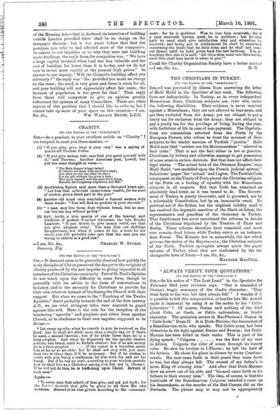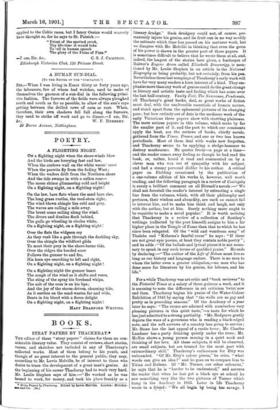"ALWAYS VERIFY YOUR QUOTATIONS." [To THE EDITOR OF THE "SPECTATOR.']
his notice of "The Lost Land" in the Spectator for February 23rd your reviewer says : "One is reminded of Ossian's tragic summary of the Gaelic character: They went forth to the war, but they always fell." I wonder if it is possible to kill this misquotation, or has the late Mr. Arnold made it immortal by using it as the motto to his "Celtic Literature " ? Of course, Ossian said nothing of the kind about Celts, or Gaels, or Celtic nationalism, or Gaelic character. The quotation occurs in MacPherson's Ossian in " Cath-Loda" Mien II. It is Duth-Maruno, the descendant of a Scandinavian exile, who speaks. The Celtic army had been victorious in the fight against Starno and Swaran ; but Duth- Marna° has been killed in their ranks. This is part of his dying speech: "Colgorm was the first of my race in Albion. Colgorm the rider of ocean through its watery vales. He slew his brother in I-Thorno; he left the land of his fathers. He chose his place in silence by rocky Crathmo- craulo. His race came forth in their years, they came forth to war, but they always felL The wound of my father's is mine, King of echoing isles." And after that nuth-Maruno drew an arrow out of his side, and "his soul came forth to his fathers to their stormy isles." The idea, of course, is that the fratricide of the Scandinavian Colgorm entailed a curse on his descendants, as the murder of the Red Comyn did on the Stewarts. The phrase may or may not be appropriately
applied to the Celtic races, but I fancy Ossian would scarcely have thought so, for he says to St. Patrick :-
'e
Priest of the spotted crook, Thy life-time it would take To tell in human speech The glory of the Feme of Finn."
Edinburgh Victorian Club, 130 Princes Street.







































 Previous page
Previous page